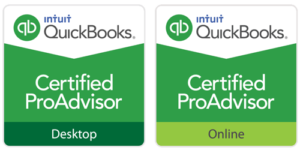To call the U.S. tax code “complicated” would be an understatement. The IRS maintains and regularly updates a dense and outright mystifying set of rules and regulations. Keeping up with the ever-changing landscape that is tax law is enough to make even the most organized business owner’s head spin. They have enough on their minds simply trying to run their business, let alone keeping up on the latest tax changes.
The answer lies in the expertise of a qualified tax advisor.
What Do Tax Advisors Do?
In a word, tax advisors are here to help. They’ll help you plan for and prepare your tax returns, but more than that, they’ll provide you with advice on how to reduce your taxes in the future. This includes their expert knowledge of deductions, credits, and other strategies to maximize your savings while staying compliant with the IRS. Tax advisors will also familiarize themselves with your specific business to give you tailored advice for your situation year-round.
That’s very different from a tax preparer, who generally only works during tax season between January and April. They can certainly assist you in preparing and filing your returns, but they can’t provide you with unique counsel specific to your business.
A tax advisor, on the other hand, becomes a trusted advisor as you work together over the years. They can become more and more useful to you as time goes by because they’ll know your particular situation inside and out. They can also offer advice in terms of future planning that could save you thousands of dollars down the line.
Down to Basics
Tax advisors are invaluable assets for any small business. Well-versed in the legal standards of IRS regulations, they can assist with itemized deductions and ensure the correct filing of returns. This could take the form of:
- Reviewing your business’s financial statements to determine profits, losses, assets, and liabilities.
- Helping you understand payroll tax questions.
- Providing representation in the event of an audit.
- Advising on strategies to reduce taxes or take advantage of credits.
For example, although Certified Public Accountants (CPAs) are often called “tax advisors,” they won’t necessarily specialize in the actual preparation of taxes or their strategies. Tax advisors are professionals who can provide you with sound advice and help maximize your savings, and they often don’t charge as much as a CPA would.
At the end of the day, tax advisors are allies and ongoing resources for any business with a complicated tax situation. They could charge a set fee, a sliding scale fee, or by the hour. It’s worth it to do your research and find an advisor who can provide you with the best service for your dollar.
Finding the Right Tax Advisor
As with any professional service, it pays to do a bit of research and due diligence before hiring a tax advisor. Decide your budget in advance and verify whether the advisor works at an hourly or fixed rate. Review their fee structure and make sure it aligns with your needs. You should also ask them to provide their credentials, including a list of businesses they’ve worked with in the past that can vouch for their quality of service.
Above all, choose someone who you can trust and who has your best interests in mind. At Bennet Bennet & Trice, PLLC, our team of tax advisors has the knowledge and experience to help you navigate your business’s taxes with ease. Contact BB&T today and see how we can help you make the most of your finances.










